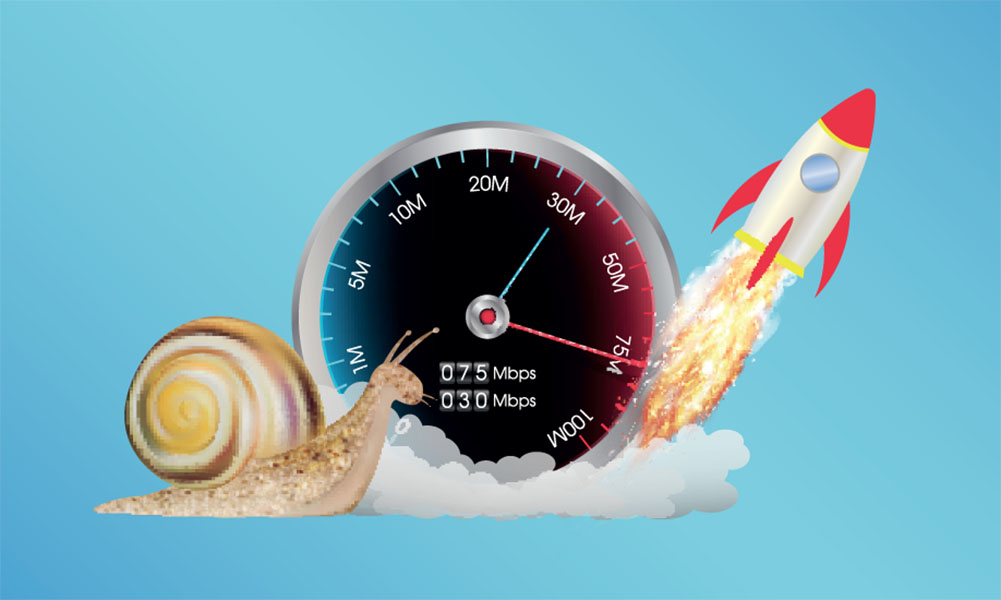The internet is wonderful when it works and – most of the time – it does. But we have all had the experience of waiting for slow webpages to load, or seeing ‘waiting’ symbols on our phones, and this can be a very frustrating experience.
Generally speaking, the reasons behind slow web connections can be addressed. Here are our top tips:
Your computer needs some love: troubleshoot your hardware
It’s worth remembering, before you start beating up your internet service provider or committing to a new superfast contract, that not all internet speed issues are down to the speed of the line itself. Your computer plays a part, too, and it needs to be in decent shape in order to do this.
Check the other computers in your office to if their internet is slow, too—if the problem only happens on one computer, the problem is that machine, not your router or modem. Run through these troubleshooting steps from our previous article to see if it’s a hardware problem.
It’s the website rather than the internet itself
We’ve all heard the stories of how the latest “must have” tickets go on sale and – almost immediately the server crashes due to the demand.
When the whole world is trying to use the same website at the same time, that website can grind to a halt and that’s nothing to do with your internet connection or your computer hardware. Depending on the situation, your options are either take it on the chin or come back when it’s quieter.
WIFI
If you’re using WiFi, you might find that your router and internet are fine, but your wireless signal is weak, causing a slowdown. First of all, try and plug yourself in directly to your router to see if speed improves. If wireless does look like it is the cause, you may need to reposition, tweak, and boost your router with a few tricks.
Wi-Fi equipment is getting better all the time, but plenty of things can get in the way of getting a good Wi-Fi signal. Aim to make your environment more Wi-Fi friendly and consider sticking to using cabled connections for important, high-bandwidth tasks like Skype calls until you have achieved this.
Bandwidth hogging plugins and apps
File-syncing services like Google Drive, Dropbox, or OneDrive might be moving data in the background as you work, which can eat up your bandwidth and slow down your internet connection.
To speed things up, quit or pause those applications if you find them moving files. Software such as BitTorrent can also be a major culprit of bandwidth hogging, moving huge amounts of data in the background while you try to get on with your tasks.
Last of all there are bandwidth-hogging ads, animations, and videos which can be tamed with a decent AdBlocker or by avoiding websites guilty of filling their sites with junk.
DNS
If your internet is showing signs of slow reaction and latency when you open a new webpage, the DNS server you are set to could be the issue. It costs nothing to input a different one to see if an alternative helps.
Too many users on the same connection
This is a variation on the website overload issue mentioned previously but is based on how many users are using your local internet connection. If this is your issue, either reduce the number of users on the same connection or invest in a stronger internet connection that can deal with multiple people’s demands.

